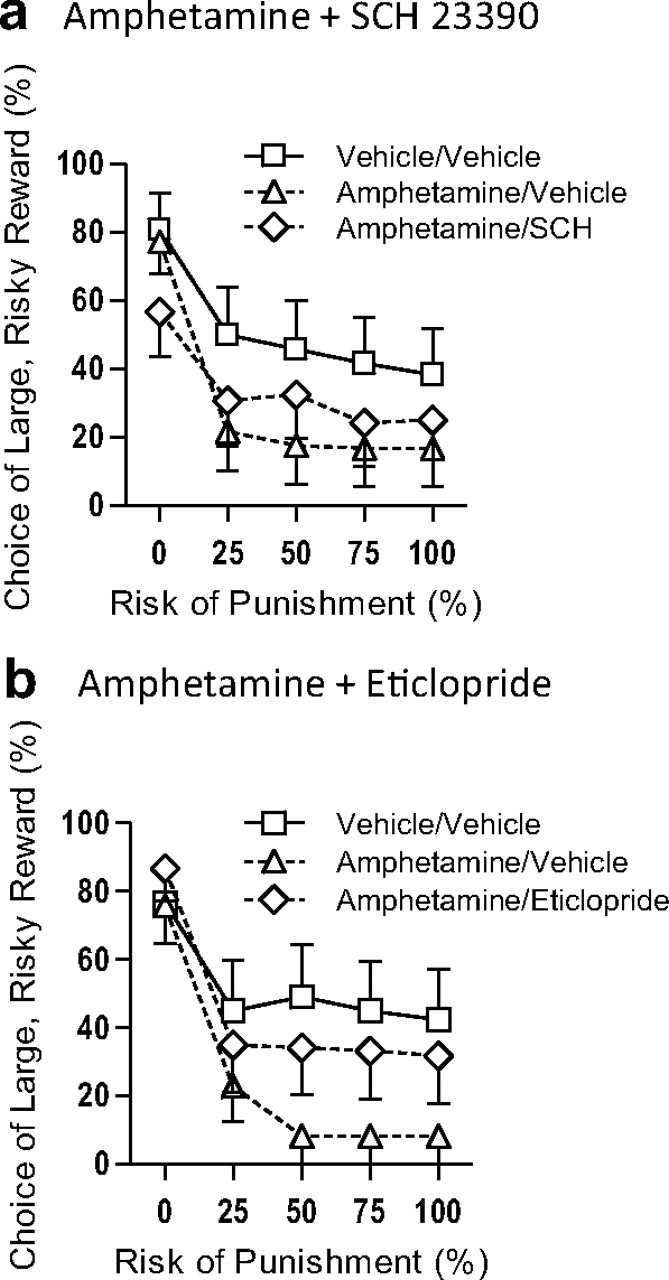Figure 2.

D2- but not D1-like receptor blockade abolishes the effects of amphetamine on risky decision-making. We showed previously that amphetamine, in a dose-dependent manner, decreases preference for the large risky reward in a manner similar to bromocriptine (Simon et al., 2009). To verify the involvement of D2-like receptors in risky decision-making, amphetamine was coadministered with either SCH23390 or eticlopride. a, Amphetamine alone attenuated risky choice relative to control conditions, and this effect was not blocked by coadministration of SCH22390 (D1-like antagonist). b, Amphetamine's effects on risky choice were significantly attenuated by coadministration of eticlopride (D2-like antagonist). These data indicate that D2-like receptor activation is necessary for amphetamine to reduce risky choice. For both graphs: n = 12, means ± SEM.
